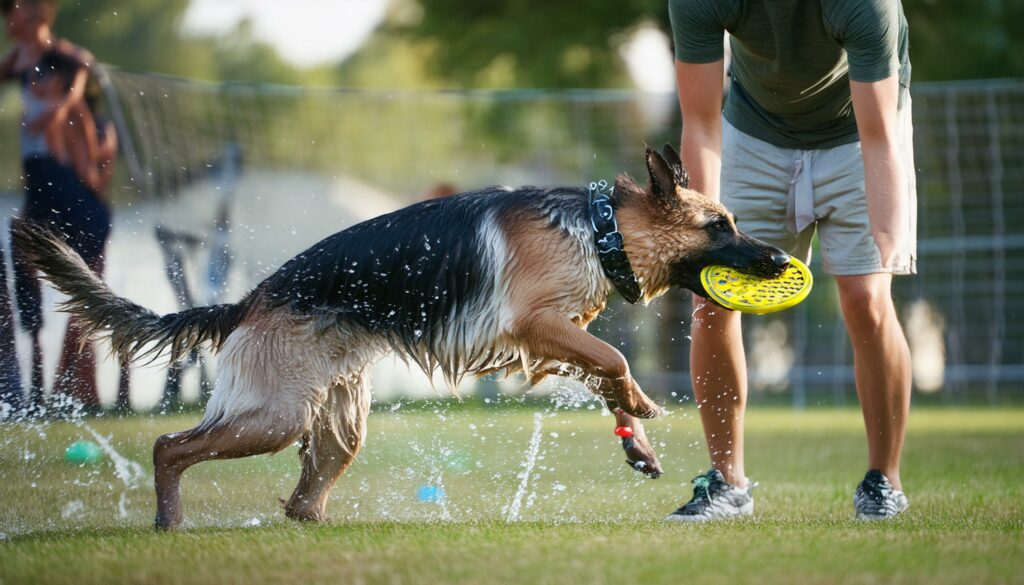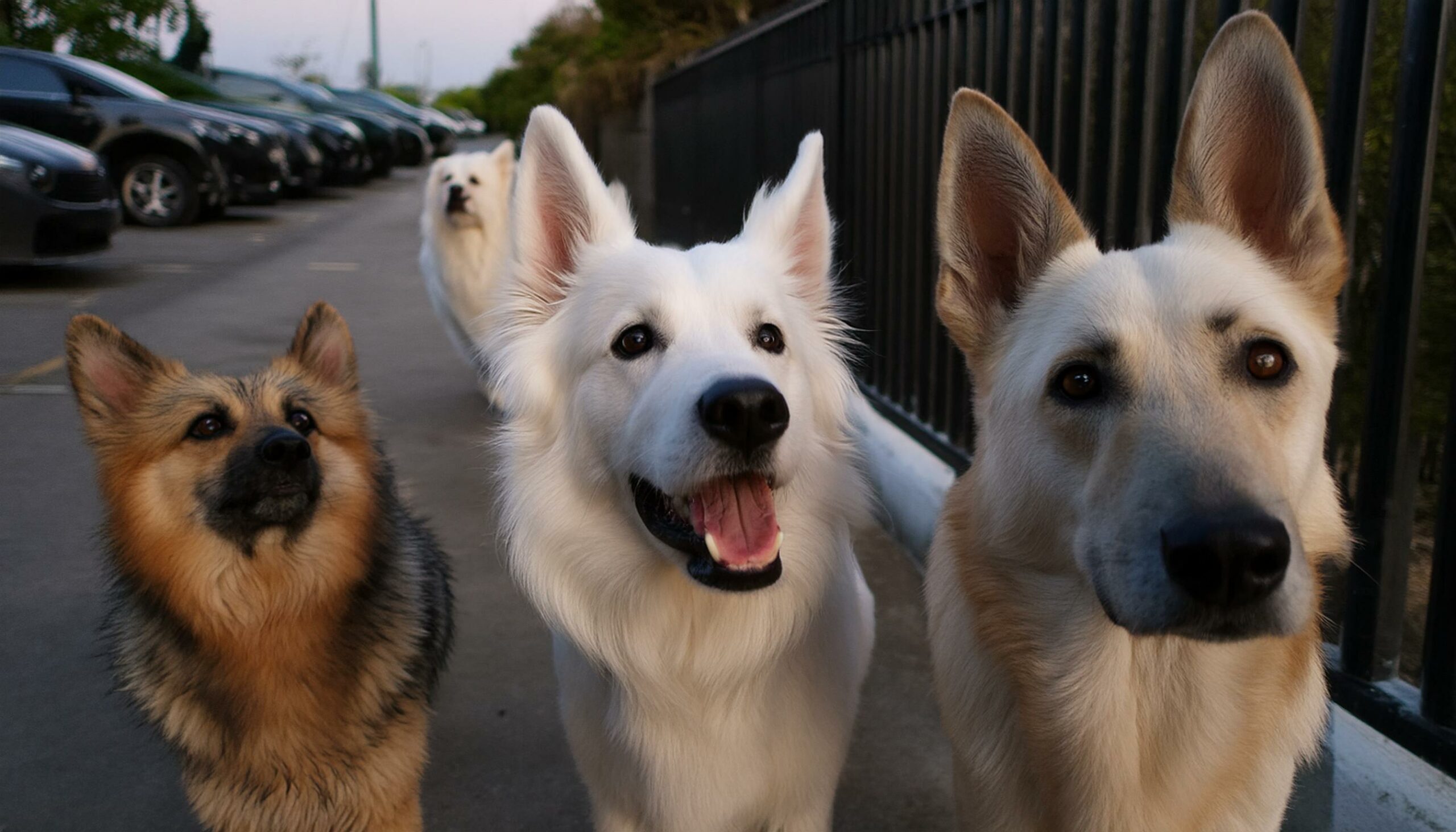German Shepherds are among the most iconic and versatile dog breeds globally, renowned for their intelligence, loyalty, and unwavering work ethic. Beyond their recognizable roles in law enforcement and military service, these canines possess a rich history and fascinating characteristics that captivate dog enthusiasts worldwide. In this comprehensive exploration, we delve into three intriguing facts about German Shepherds that illuminate their unique attributes and enduring popularity.
History and Origins
Ancestry and Origins
The story of the German Shepherd traces back to late 19th-century Germany, where they were initially bred for herding purposes. Captain Max von Stephanitz, a visionary dog enthusiast, recognized the potential of these intelligent and agile canines and embarked on a mission to standardize the breed.
Breed Standardization
Stephanitz’s dedication culminated in the establishment of the German Shepherd Dog Club in 1899 and the formalization of the breed standard. This standard emphasized not only the physical attributes but also the breed’s utility, intelligence, and adaptability to various tasks.
Physical Characteristics

Size and Build
German Shepherds exhibit a well-balanced and muscular build, reflecting their athleticism and strength. Males typically stand between 24 to 26 inches tall at the shoulder, while females are slightly smaller. Their sturdy frame enables them to excel in various activities, from herding to agility competitions.
Coat and Color Variations
One of the distinguishing features of German Shepherds is their double coat, comprising a dense undercoat and a longer, coarser outer coat. While the classic black and tan coloration is most common, they can also appear in sable, all black, or all white variations, each possessing its unique charm.
Temperament and Personality Traits
Loyalty and Intelligence
German Shepherds are renowned for their unwavering loyalty and deep bond with their human companions. Their exceptional intelligence and keen intuition enable them to anticipate their owner’s needs and respond effectively, making them invaluable family members and working partners.
Trainability and Work Ethic
Their eagerness to learn and please, coupled with their innate drive and work ethic, render German Shepherds highly trainable across various disciplines. Whether it’s obedience training, search and rescue missions, or therapy work, these canines approach every task with enthusiasm and dedication.
Role in Society

Police and Military Work
German Shepherds have long served alongside law enforcement and military personnel worldwide, earning a reputation for their unmatched versatility and reliability. Their acute senses, including keen olfactory and auditory abilities, make them indispensable assets in tasks such as drug detection, tracking, and apprehension.
Service and Therapy Dogs
Beyond their roles in security and defense, German Shepherds excel as service and therapy dogs, providing invaluable assistance and comfort to individuals in need. Their calm demeanor, coupled with their innate empathy and intelligence, make them ideal companions for those with disabilities or in therapeutic settings.
Health Considerations
Common Health Issues
Like all breeds, German Shepherds are susceptible to certain health conditions, including hip dysplasia, degenerative myelopathy, and bloat. Responsible breeding practices and routine veterinary care are essential for minimizing the risk of these ailments and ensuring the overall well-being of the breed.
Lifespan and Care Requirements
On average, German Shepherds have a lifespan of 9 to 13 years, though individual longevity may vary based on factors such as genetics, diet, and lifestyle. Providing adequate nutrition, regular exercise, and mental stimulation are crucial for promoting their physical and mental health throughout their lives.
Popularity and Recognition
Ranking in Dog Breeds
German Shepherds consistently rank among the most popular dog breeds globally, a testament to their versatility, intelligence, and unwavering loyalty. Their adaptability to various roles, coupled with their strong work ethic, continues to endear them to dog enthusiasts of all ages.
Famous German Shepherds
Throughout history, numerous German Shepherds have left an indelible mark on society with their remarkable achievements and contributions. From Rin Tin Tin, a canine movie star credited with saving Warner Bros. from bankruptcy, to Buddy, the first seeing-eye guide dog, these remarkable canines showcase the breed’s versatility and impact on human lives.
Conclusion
In conclusion, German Shepherds epitomize the perfect blend of intelligence, loyalty, and versatility, making them beloved companions and invaluable working partners. Whether serving in law enforcement, providing assistance to individuals in need, or simply enriching the lives of their families, these remarkable canines continue to leave an indelible mark on society.
FAQs About German Shepherds
Are German Shepherds good family pets?
Yes, with proper training and socialization, German Shepherds can be excellent family pets, offering unwavering loyalty and companionship.
Do German Shepherds require a lot of exercise?
Yes, German Shepherds are active dogs that thrive on regular exercise and mental stimulation to maintain their physical and mental well-being.
Are German Shepherds aggressive?
When properly trained and socialized, German Shepherds are not inherently aggressive. However, like any dog breed, individual temperament can vary, emphasizing the importance of early socialization and training.
Do German Shepherds shed a lot?
Yes, German Shepherds have a double coat and shed moderately year-round, with heavier shedding during seasonal changes. Regular grooming can help minimize shedding and maintain coat health.
Can German Shepherds live in apartments?
While German Shepherds can adapt to apartment living with sufficient exercise and mental stimulation, they thrive best in homes with access to outdoor space for regular physical activity.
